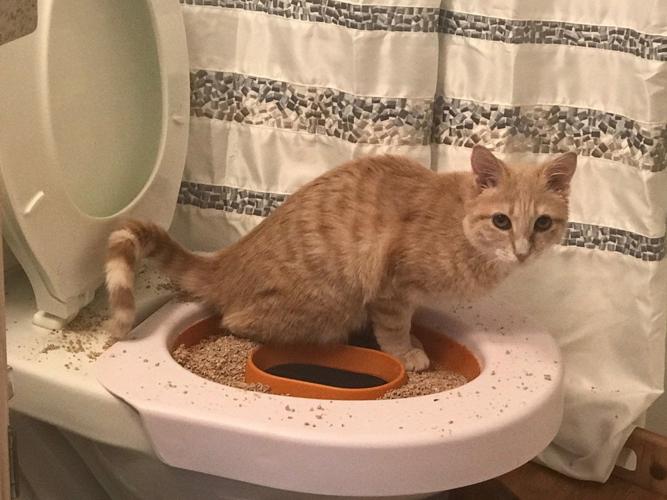Why You Should Never Flush Cat Poop Down Your Toilet - Critical Information
Why You Should Never Flush Cat Poop Down Your Toilet - Critical Information
Blog Article
Every person has got their unique piece of advice on the subject of Don’t flush cat feces down the toilet.

Intro
As feline proprietors, it's essential to be mindful of exactly how we dispose of our feline good friends' waste. While it might seem convenient to flush feline poop down the bathroom, this method can have destructive effects for both the environment and human health.
Alternatives to Flushing
Thankfully, there are safer and much more responsible means to dispose of pet cat poop. Consider the following alternatives:
1. Scoop and Dispose in Trash
One of the most common approach of disposing of pet cat poop is to scoop it right into a naturally degradable bag and throw it in the garbage. Be sure to use a specialized litter inside story and get rid of the waste promptly.
2. Usage Biodegradable Litter
Select biodegradable feline clutter made from products such as corn or wheat. These clutters are environmentally friendly and can be safely thrown away in the trash.
3. Hide in the Yard
If you have a backyard, think about burying feline waste in a designated location far from vegetable gardens and water resources. Make sure to dig deep adequate to prevent contamination of groundwater.
4. Set Up a Pet Waste Disposal System
Purchase a pet garbage disposal system particularly created for cat waste. These systems use enzymes to break down the waste, decreasing odor and environmental effect.
Health and wellness Risks
Along with ecological worries, purging cat waste can also pose wellness risks to humans. Cat feces may include Toxoplasma gondii, a bloodsucker that can trigger toxoplasmosis-- a potentially severe ailment, specifically for expectant females and individuals with damaged immune systems.
Environmental Impact
Purging cat poop presents harmful virus and bloodsuckers into the water system, presenting a considerable danger to marine ecological communities. These impurities can adversely influence marine life and compromise water high quality.
Verdict
Accountable pet ownership extends beyond supplying food and sanctuary-- it likewise entails proper waste management. By refraining from flushing feline poop down the bathroom and choosing alternate disposal techniques, we can reduce our ecological footprint and secure human wellness.
Why Can’t I Flush Cat Poop?
It Spreads a Parasite
Cats are frequently infected with a parasite called toxoplasma gondii. The parasite causes an infection called toxoplasmosis. It is usually harmless to cats. The parasite only uses cat poop as a host for its eggs. Otherwise, the cat’s immune system usually keeps the infection at low enough levels to maintain its own health. But it does not stop the develop of eggs. These eggs are tiny and surprisingly tough. They may survive for a year before they begin to grow. But that’s the problem.
Our wastewater system is not designed to deal with toxoplasmosis eggs. Instead, most eggs will flush from your toilet into sewers and wastewater management plants. After the sewage is treated for many other harmful things in it, it is typically released into local rivers, lakes, or oceans. Here, the toxoplasmosis eggs can find new hosts, including starfish, crabs, otters, and many other wildlife. For many, this is a significant risk to their health. Toxoplasmosis can also end up infecting water sources that are important for agriculture, which means our deer, pigs, and sheep can get infected too.
Is There Risk to Humans?
There can be a risk to human life from flushing cat poop down the toilet. If you do so, the parasites from your cat’s poop can end up in shellfish, game animals, or livestock. If this meat is then served raw or undercooked, the people who eat it can get sick.
In fact, according to the CDC, 40 million people in the United States are infected with toxoplasma gondii. They get it from exposure to infected seafood, or from some kind of cat poop contamination, like drinking from a stream that is contaminated or touching anything that has come into contact with cat poop. That includes just cleaning a cat litter box.
Most people who get infected with these parasites will not develop any symptoms. However, for pregnant women or for those with compromised immune systems, the parasite can cause severe health problems.
How to Handle Cat Poop
The best way to handle cat poop is actually to clean the box more often. The eggs that the parasite sheds will not become active until one to five days after the cat poops. That means that if you clean daily, you’re much less likely to come into direct contact with infectious eggs.
That said, always dispose of cat poop in the garbage and not down the toilet. Wash your hands before and after you clean the litter box, and bring the bag of poop right outside to your garbage bins.
https://trenchlesssolutionsusa.com/why-cant-i-flush-cat-poop/

As a reader about Can You Flush Cat Poo or Litter Down the Toilet?, I think sharing that piece of writing was really helpful. Do you know about someone else who is fascinated with the niche? Take a moment to promote it. Thanks a lot for your time. Kindly check our site back soon.
Book Services Report this page